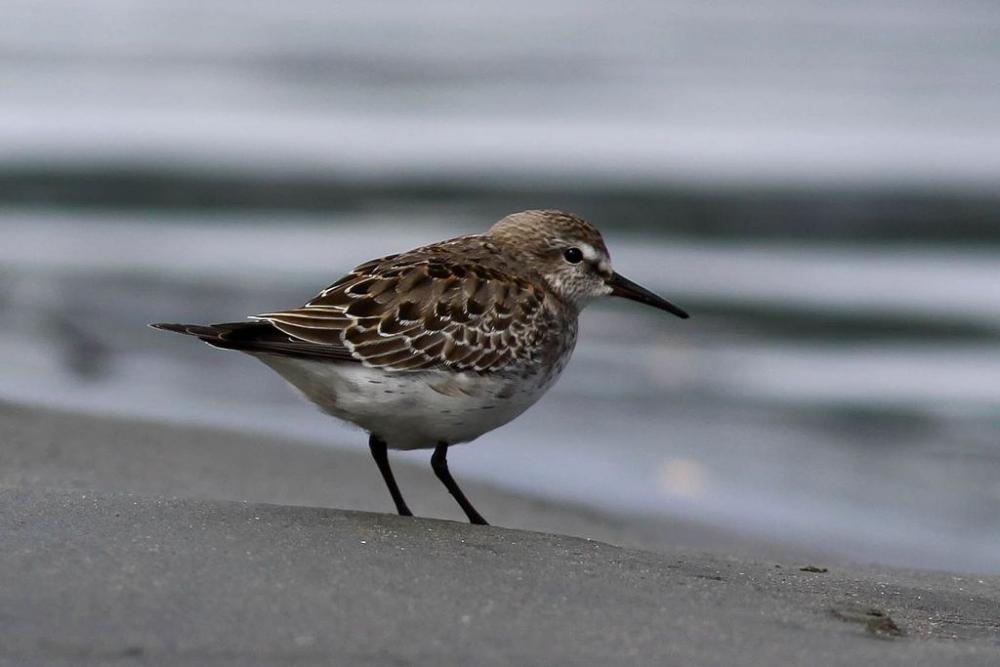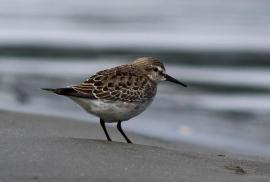Guide to Boreal Birds
Overview
A long-distance flier, the White-rumped Sandpiper performs annual migrations between the Arctic and the subantarctic region. On its wintering grounds in Argentina, this is the most common of the smaller sandpipers. With its conspicuous white rump, this species is the easiest to identify of the "peeps."
Description
7 1/2" (19 cm). A slender "peep" (small sandpiper) with a short straight bill and a white rump. About the same size as Baird's Sandpiper; larger than Least, Semipalmated, and Western sandpipers. Wing tips extend beyond end of tail, giving bird a "pointed" look behind. Breeding adults have tinge of rusty color on crown and ear coverts, dark brown streaks or spots on flanks. Fall adults have gray upperparts and gray wash on breast, and a narrow, pale eyebrow. Young birds brighter, with feathers of upperparts edged with rufous.
Voice
A very high-pitched tzeet; also a swallow-like twitter.
Nesting
4 olive eggs, spotted with brown, in a grass-lined nest in a slight depression on the ground.
Habitat
Breeds on tundra; flats, grassy pools, wet meadows, and shores during migration.
Range/Migration
Breeds in northern Alaska and Canadian Arctic. Migrates mainly though eastern and central United States. Winters in South America.



